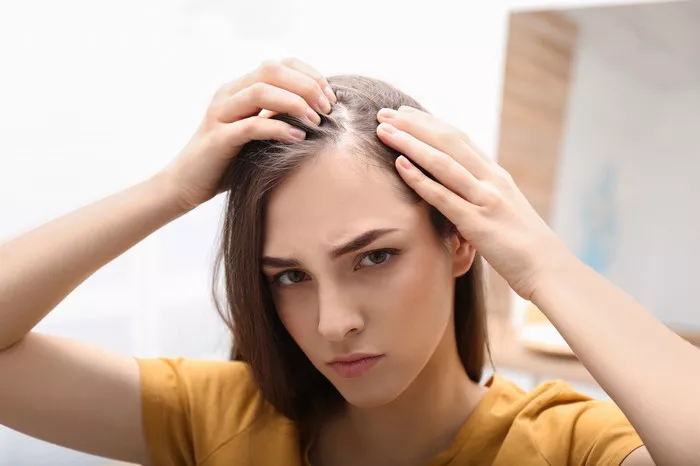Hair loss is a common concern that can be attributed to various factors, including nutritional deficiencies. Ferritin, a protein that stores iron, plays a crucial role in maintaining healthy hair growth. In this comprehensive article, we will delve into the intricacies of ferritin deficiency and its potential link to hair loss.
Understanding Ferritin and its Role in the Body
Ferritin is a protein found in cells that store iron, releasing it when the body needs it. Iron is essential for various bodily functions, including the transportation of oxygen to cells and tissues. Ferritin acts as a reservoir, ensuring a steady supply of iron is available as needed.
The Significance of Ferritin in Hair Health
Ferritin’s role in hair health is closely tied to its impact on the hair growth cycle. Adequate iron levels support the proliferation of cells in the hair follicles, promoting the growth of strong and healthy hair. When ferritin levels are low, the body may prioritize essential functions over hair growth, leading to potential disruptions in the hair cycle and subsequent hair loss.
Research on Ferritin Deficiency and Hair Loss
Several studies have explored the relationship between ferritin levels and hair loss. A study published in the “Journal of Korean Medical Science” in 2013 found a significant association between low ferritin levels and female pattern hair loss. Another study in the “Journal of the American Academy of Dermatology” in 2006 concluded that iron deficiency without anemia is a risk factor for hair loss in premenopausal women.
See Also: Excessive Caffeine Consumption and Hair Loss: Does It Matter?
Symptoms of Ferritin Deficiency
Identifying ferritin deficiency early is crucial for preventing potential complications, including hair loss. Common symptoms of ferritin deficiency include:
Fatigue:
Low ferritin levels can lead to fatigue and a general sense of weakness, as iron is essential for energy production.
Pale Skin:
Iron deficiency can result in pale or sallow skin, indicating decreased oxygen flow to the skin cells.
Shortness of Breath:
Insufficient iron levels may lead to reduced oxygen transport, causing shortness of breath even with minimal physical exertion.
Brittle Nails:
The health of nails is closely linked to iron levels, and brittleness or ridges may indicate a deficiency.
Headaches:
Inadequate iron can impact circulation, potentially leading to headaches and migraines.
The Hair Growth Cycle and Ferritin
Understanding the hair growth cycle is essential in comprehending how ferritin deficiency may contribute to hair loss:
Anagen Phase:
This is the active growth phase of hair follicles, and iron deficiency can potentially disrupt this phase, leading to premature hair shedding.
Catagen Phase:
Transition phase where hair growth slows, and the follicle prepares for shedding. Ferritin deficiency may accelerate this process.
Telogen Phase:
Resting phase where old hair is released and new hair begins to grow. Low ferritin levels may prolong the resting phase, resulting in increased hair shedding.
Addressing Ferritin Deficiency and Promoting Hair Health
Diagnostic Blood Tests:
If you suspect ferritin deficiency may be contributing to hair loss, consult with a healthcare professional. A simple blood test can measure ferritin levels and determine if supplementation is necessary.
Iron-Rich Diet:
Incorporate iron-rich foods into your diet, such as lean meats, poultry, fish, beans, lentils, and fortified cereals. Consuming vitamin C-rich foods alongside iron sources can enhance iron absorption.
Supplementation:
If ferritin levels are significantly low, healthcare professionals may recommend iron supplementation. It’s essential to follow their guidance to avoid excessive iron intake, which can have adverse effects.
Monitor Other Nutrients:
Ensure your diet includes a balance of essential nutrients, including vitamins and minerals, as deficiencies in other areas can also impact hair health.
Preventing Ferritin Deficiency-Related Hair Loss
Early Detection:
Regular health check-ups and monitoring ferritin levels can help detect deficiencies early, preventing potential complications like hair loss.
Balanced Diet:
Maintain a well-rounded and nutrient-rich diet to support overall health, including the health of your hair.
Consult a Healthcare Professional:
If you experience symptoms of ferritin deficiency or notice changes in your hair health, consult with a healthcare professional for proper evaluation and guidance.
Conclusion: Nourishing Your Hair from Within
Ferritin deficiency can indeed contribute to hair loss, emphasizing the importance of maintaining optimal iron levels for overall health. Understanding the connection between ferritin and hair health allows individuals to take proactive steps in preventing and addressing potential deficiencies. By incorporating iron-rich foods, considering supplementation when necessary, and seeking guidance from healthcare professionals, you can nourish your hair from within and promote a healthy, vibrant mane.


